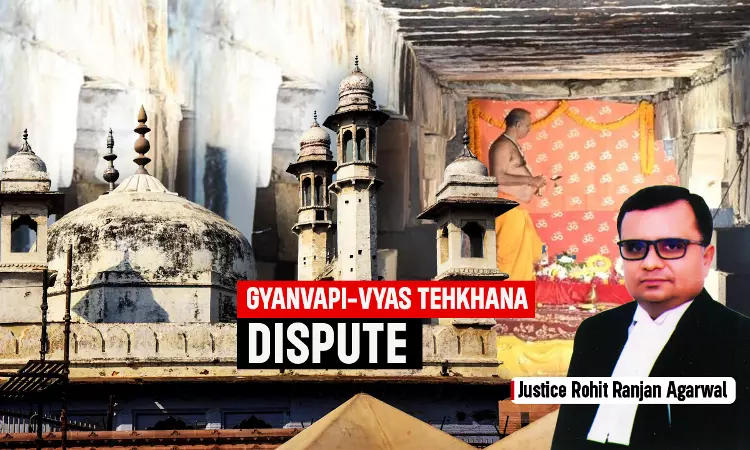- Home
- /
- High Courts
- /
- Allahabad High Court
- /
- Gyanvapi | 'Puja Never Ceased In...
Gyanvapi | 'Puja Never Ceased In Vyas Tehkhana': Contends Hindu Plaintiff In HC Amid Mosque Committee's Claims Of Having Its Possession Till 1993
LIVELAW NEWS NETWORK
7 Feb 2024 1:48 PM IST
The Hindu plaintiff in a suit concerning the Gyanvapi Mosque-Vyas Cellar/Tehkhana dispute today asserted before the Allahabad High Court that Hindu 'Puja-Path' never stopped inside the Tehkhana and it continued even after 1993 when the CRPF took possession of the same.The submission was made by Advocate Hari Shankar Jain (appearing for the Plaintiff-Shailendra Kumar Pathak Vyas) in a plea...
Tags
Gyanvapi Vyas TehkhanaGyanvapi MosqueGyanvapi Mosque DisputeMosque CommitteeGyanvapi Mosque SurveyArchaeological Survey of IndiaVaranasiState of Uttar PradeshVyas TahkhanaGyanvapi BasementShringar Gauri Worshipping suit 2022Maa Shringar GauriVaranasi CourtGyanvapi ASI SurveyGyanvapi CaseGyanvapi SurveyGyanvapi MasjidKashi Vishwanath-Gyanvapi RowGyanvapi DisputeGyanvapi Mosque IssueDistrict Judge AK VishveshaVaranasi District JudgeGyanvapi Masjid CaseGyanvapi Mosque CaseGyanvapi-Shiva Linga CaseAnjuman Intazamia MasazidAnjuman Intezamia Masjid CommitteeAnjuman Islamia Mosque CommitteeAnjuman Intazamia Masazid VaranasiJustice Rohit Ranjan Agrawal
Next Story



